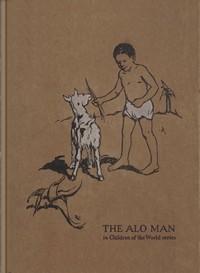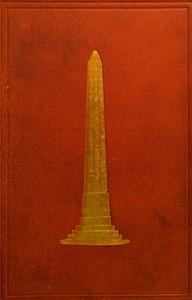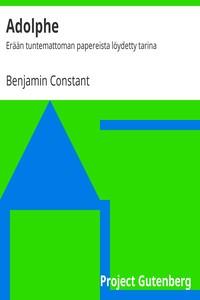|
|
Read this ebook for free! No credit card needed, absolutely nothing to pay.Words: 36482 in 17 pages
This is an ebook sharing website. You can read the uploaded ebooks for free here. No credit cards needed, nothing to pay. If you want to own a digital copy of the ebook, or want to read offline with your favorite ebook-reader, then you can choose to buy and download the ebook.

: The Alo Man by Lamprey Louise Pratt Chadwick Mara L Mara Louise Crampton Rollin McNeil Illustrator - Kongo (African people) Juvenile fiction@FreeBooksWed 08 Nov, 2023 THE ALO MAN THE DRUM IN THE FOREST Mpoko the boy and Nkunda the girl were squatting in the firelight just outside their mother's hut, where they could smell the smells from the cooking pots the women were tending so carefully. Their father, the chief of the tiny village, had gone with his men two days before on a trading journey to one of the great markets. They should have been at home before this. Mpoko was busy winding a precious piece of brass wire round the handle of his pet hunting spear, and Nkunda was watching him. Each man or boy of the village had his favorite spear with its leaf-shaped iron blade, and the wire on the handle was useful as well as ornamental, for it gave a good grip. Iron is found almost everywhere in Africa, and the native blacksmiths made not only spear heads but knife blades and little axes. They could not make brass, which is a mixture of copper and zinc, but all traders had brass rods in their stores, and these could be hammered into all sorts of shapes. When these rods were first brought into the country, they were made about thirty inches long; but there was so much demand for smaller pieces to use in trading like small change, that they were now made only six or seven inches in length. Nkunda had a piece of brass wire almost as long as Mpoko's, but hers was coiled round her slender brown wrist as a bracelet. In Central Africa, supper time is about six o'clock all the year round. From one season to another, night and day are nearly equal and the time of sunrise and of sunset changes hardly more than fifteen minutes throughout the year. The year begins with the first heavy rain of the wet season, and when the new green shoots come out on the spurge thickets the people know that the new year is at hand. The evening meal is the most important one of the day, sometimes the only regular meal. Soon after sunrise on this particular day the women, as usual, had picked up their hoes, their baskets, and their babies and had gone out to work on the farms outside the village. They had come back in the middle of the afternoon to begin preparing supper, which was a matter of some hours' work, because there were so many different things to be done. Grain for bread or mush had to be ground on heavy stone slabs, vegetables must be made ready for cooking, water, fetched from the spring, wood brought, and fires made. Mpoko and Nkunda had helped a little, and they knew where, in a heap of hot ashes, the sweet potatoes from their own corner of the field were baking. There would be boiled fowl and cassava bread, and maybe some stewed fruit. Besides helping their mothers, the children of the village had their own special work,--to drive in the goats from the fields,--and they had done this before sunset. All the shaggy, bleating little animals were now safe in the pen built of logs and roofed with planks, and Mpoko had seen to it that stakes were set firmly across the entrance to keep them in and keep out wild beasts. Even as the children sat here in the firelight they heard from time to time the hunting call of a leopard or hyena, but no fierce prowling creature of the jungle would come near the fires. The cooking fires were in the middle of the open space around which the village was built. The village itself was nothing more than a rather irregular circle of huts inside a fence. Mpoko and Nkunda were sitting at the very edge of the great black shadow that closed in the lighted space and, beyond the huts, melted into the deep velvet darkness of the forest. The forest was all around them, and it was full of the noises of the night. The wind was whispering in the great leaves and walking in the tall grasses; the chitter and scamper of some small animal or the call of sleepy birds now and then broke the silence of the night. Under the many rustlings and whisperings there was always to be heard the voice of a mighty river flowing through the wilderness. The people of the village knew a great deal about this river, but they could not have found it on a map, for they had never seen such a thing. White men call it the Congo. This was the name of a chief who ruled the country near the mouth of the river more than five hundred years ago, before even the first Portuguese explorers came. It was the Portuguese who gave his name to the river. But the Congo has many names in the twenty-five hundred miles of its length. Here in the jungle it has a very long name which means The-great-river-out-of-the-lake-that-drowns-the-locust-who-tries-to-fly-across. If a person knows, as the Bantu people do, how far a locust can fly without alighting, this name for the great lake is really useful. The whole of the name is Mwerukatamuvudanshi, but nobody used it unless the chiefs were having a formal council, and on the white men's maps the lake is called Mweru. In other parts of its course the river was called after whatever lakes, mountains, or cataracts there might be in the neighborhood. Mpoko and Nkunda talked a little about the river as they squatted there in the warm darkness. Mpoko had been promised that he should go fishing when the canoes went downstream to mend a bridge that was shaky, and Nkunda promised to help him make new nets for the fishing. He finished winding the wire round the spear handle and began to polish it with great care. Then very far away in the forest they heard the tapping of a drum. The sound of a drum in the African jungle always means something. It may mean a village dance; it may mean news; it may mean sudden danger. It is not like any other noise in the forest. Free books android app tbrJar TBR JAR Read Free books online gutenberg More posts by @FreeBooks
: Ukraine the land and its people by Rudnytskyi Stepan - Ukraine; Ukrainians@FreeBooksTue 07 Nov, 2023

: Cleopatra's needle by Wilson Erasmus Sir - Obelisks; Cleopatra's Needle (London England)@FreeBooksTue 07 Nov, 2023
|
Terms of Use Stock Market News! © gutenberg.org.in2025 All Rights reserved.






